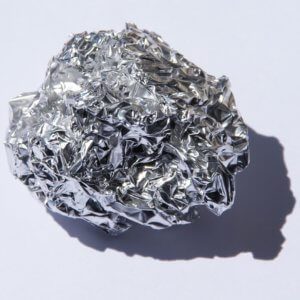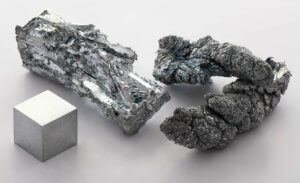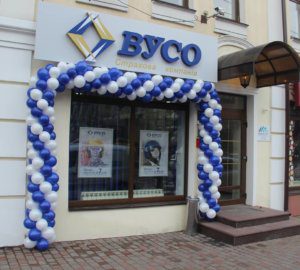
Ukraine in January-July of this year increased imports of aluminum ore and concentrate (bauxites) in natural terms by 6.3% compared to the same period in 2017, to 2.772 million tonnes.
According to customs statistics released by the State Fiscal Service, during this period bauxite imports in monetary terms decreased by 1.3%, to $109.994 million.
At the same time, imports were mainly from Guinea (57.99% of deliveries in monetary terms), Guyana (35.86%), and Brazil (5.48%).
In January-July 2018 some 45 tonnes of bauxite were re-exported to Poland for $5,000, whereas in January-July 2017 some 22 tonnes of bauxite were re-exported to Poland for $1,000 and 140 tonnes worth $9,000 to Russia.
As reported, Ukraine in 2017 raised imports of bauxite in natural terms by 21.8% compared to 2016, to 4.864 million tonnes, in monetary terms by 36.9%, to $212.370 million. Imports were carried out mainly from Guinea (45.92% of supplies in monetary terms), Guyana (28.72%), and Brazil (14.86%).
As a whole, in 2017 some 162 tonnes worth $10,000 were exported, whereas in 2016 re-exports were not carried out.

Ukraine in January-July 2018 increased imports of nickel ore and concentrate in natural terms by 13.4% compared to the same period in 2017, to 891,674 tonnes.
According to customs statistics released by the State Fiscal Service, in monetary terms nickel ore imports rose by 13.5%, to $43.584 million.
At the same time, imports were made from Guatemala (71.01% of deliveries in monetary terms), and Indonesia (28.99%).
For the seven months of the year, Ukraine did not export and re-export these products, as well as in January-July 2017.
As reported, Ukraine in 2017 reduced imports of nickel ore and concentrate in natural terms by 4.2% compared to 2016, to 1.314 million tonnes, in monetary terms by 8.3%, to $64.172 million. At the same time, all imports were from Guatemala (100% of supplies).
Pobuzke Ferronickel Combine (part of Solway Group) imports nickel ore to Ukraine.
The plant processes about 1.2 million tonnes of ore a year.

Ribas Hotels Group LLC (Odesa), the managing company of the national network of three- and four-star hotel and restaurant complexes, plans to complete the acquisition of a hotel in Bukovel, Ivano-Frankivsk region, by the end of 2018, and in two or three years to gain a foothold in all resort regions of Ukraine.
“We are positioning ourselves as a network of tourist-oriented hotels. Therefore the main focus is on Western Ukraine: in September we are buying a hotel in Bukovel, we are negotiating for the purchase of a 50% stake in one of the largest hotels in Lviv. We also plan to launch a hostel or an apart-hotel. We are looking to the hotels for rent in Kyiv,” Artur Lupashko, the founder of Ribas Hotels Group, told Interfax-Ukraine.
According to him, the opening of a hotel in Bukovel is scheduled for the third and fourth quarters of 2019. The facility is unfinished and it will take eight or nine months to complete all the works.
Lupashko added the company also plans to enter the international market.
Ribas Hotels Group also plans to develop a franchise direction.
Ribas Hotels Group provides comprehensive management services, the services of exclusive booking, franchising, design.

VUSO Insurance Company (Kyiv) in January-June 2018 paid UAH 6.9 million on direct settlement of cases on compulsory insurance of motor vehicle owners’ liability (OSAGO), which is 5.75 times more than in the same period a year earlier.
According to a press release of the insurer, the company’s customers began to use the method of direct settlement of losses more often and apply for compensation of damage to their insurer but not the company where the policy of the person guilty in the accident was drawn up. In this way, VUSO settled 394 insurance cases in the first half of the year, while a year earlier the figure stood at 97.
In total for the reporting period, the company collected UAH 28.5 million of premiums on OSAGO, which is 19% more than in the same period a year earlier. Some 1,717 insurance cases were settled, which is 7% more than for the same period of 2017 (1,605).
The company notes that the average amount of compensation for material damage on road accidents for this type of insurance in the first half of the year increased by 2%, to UAH 13,900.

There are both economic and strategic components in the issue of concern for the Nord Stream 2 project, while Ukraine needs to seek alternative natural gas resources, Assistant to the U.S. President for National Security Affairs John Bolton has stated.
We with the prime minister of Ukraine held a very interesting discussion on energy resources and the role Ukraine plays, what we can do in future, Bolton said at a press conference in Kyiv.
According to him, U.S. President Donald Trump, expressing concern about Nord Stream 2, stresses “not only the economic importance of this issue in Europe … but also strategic.”
Undoubtedly, this is what is connected with the monopoly of a supplier of critical energy resources … Why do you, Europe, voluntarily bind yourself even more to Russian energy suppliers? An alternative option for Ukraine and other countries is to find other natural gas sources and resources, he added.
He stressed this is the matter of policy, the government of Ukraine to look for alternative energy resources so that there is no dependence on Russia.
Bolton noted that if Nord Stream 2 is built, then Ukraine will remain in a situation of risk that Russia, even if it undertakes, will not supply sufficient volumes of gas.